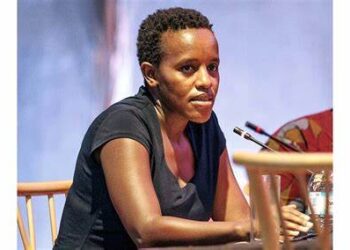In Ugandan society, boundaries play a crucial role in shaping interpersonal relationships, preserving individual autonomy, and fostering communal harmony. Unlike mere physical dividers, boundaries serve as psychological safeguards against manipulation and control, offering a framework for mutual respect and dignity.
In traditional Ugandan families, where patriarchal influence often holds sway, establishing healthy boundaries is essential for maintaining individual autonomy and familial cohesion. For instance, within extended families, delineating boundaries around personal space, decision-making autonomy, and financial independence can mitigate conflicts and promote healthier dynamics. By asserting their agency within the familial structure, individuals uphold their dignity while contributing to the overall well-being of the family unit.
However, navigating boundary-setting in Uganda is not without its challenges. Cultural norms emphasizing collectivism over individualism may deter individuals from asserting their boundaries for fear of social ostracism or familial discord. Moreover, patriarchal structures within Ugandan society can marginalize women, limiting their ability to establish and enforce boundaries within familial and societal contexts. Additionally, the legacy of colonialism has left enduring scars on Uganda’s social fabric, exacerbating power imbalances and undermining trust, further complicating boundary-setting efforts.
Education and advocacy play a crucial role in promoting a culture of healthy boundaries in Uganda. Empowering individuals with knowledge about the importance of boundaries, consent, and assertive communication equips them to navigate complex interpersonal dynamics more effectively. Advocacy initiatives that challenge harmful cultural practices, such as gender-based violence and child marriage, are instrumental in dismantling barriers to boundary-setting, particularly for marginalized groups.
Illustrative case studies shed light on the practical applications of boundary-setting in Ugandan society. The practice of bride price, where gifts or money are exchanged from the groom’s family to the bride’s family, illustrates the complexities of cultural traditions intersecting with individual autonomy. While bride price is deeply ingrained in tradition, it can sometimes undermine women’s autonomy and perpetuate harmful power dynamics within marriages. Grassroots organizations like the Uganda Women’s Network work to challenge the harmful aspects of this tradition while preserving its cultural significance, advocating for clear boundaries and gender equality within marital relationships.
Similarly, land disputes, pervasive in Ugandan society due to unclear land tenure systems and competing claims to ancestral land, highlight the importance of establishing and respecting boundaries. Literal and metaphorical boundaries are central to resolving these disputes and preventing further conflict. Organizations like Landnet Uganda facilitate community dialogues and legal assistance to help communities establish clear boundaries, document land rights, and promote peaceful conflict resolution, thereby fostering societal harmony and stability.
In conclusion, boundaries are not merely dividers but bridges to freedom and empowerment in Ugandan society. By recognizing the biblical principles underlying boundary-setting and addressing the unique cultural and societal dynamics at play, Ugandans can cultivate a culture of mutual respect, consent, and accountability. Through education, advocacy, and grassroots initiatives, Uganda can chart a path towards greater social justice, gender equality, and human dignity, where boundaries are not seen as barriers but as pathways to liberation.







Discussion about this post